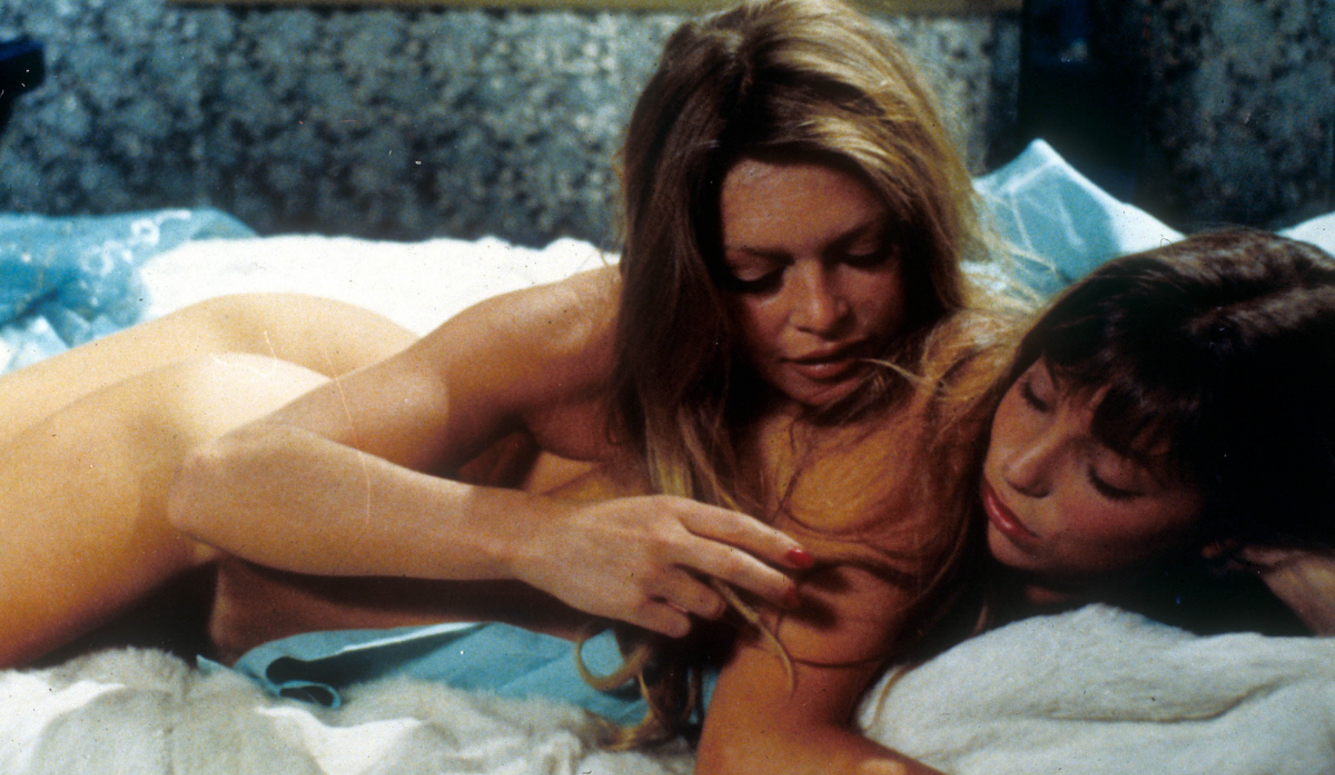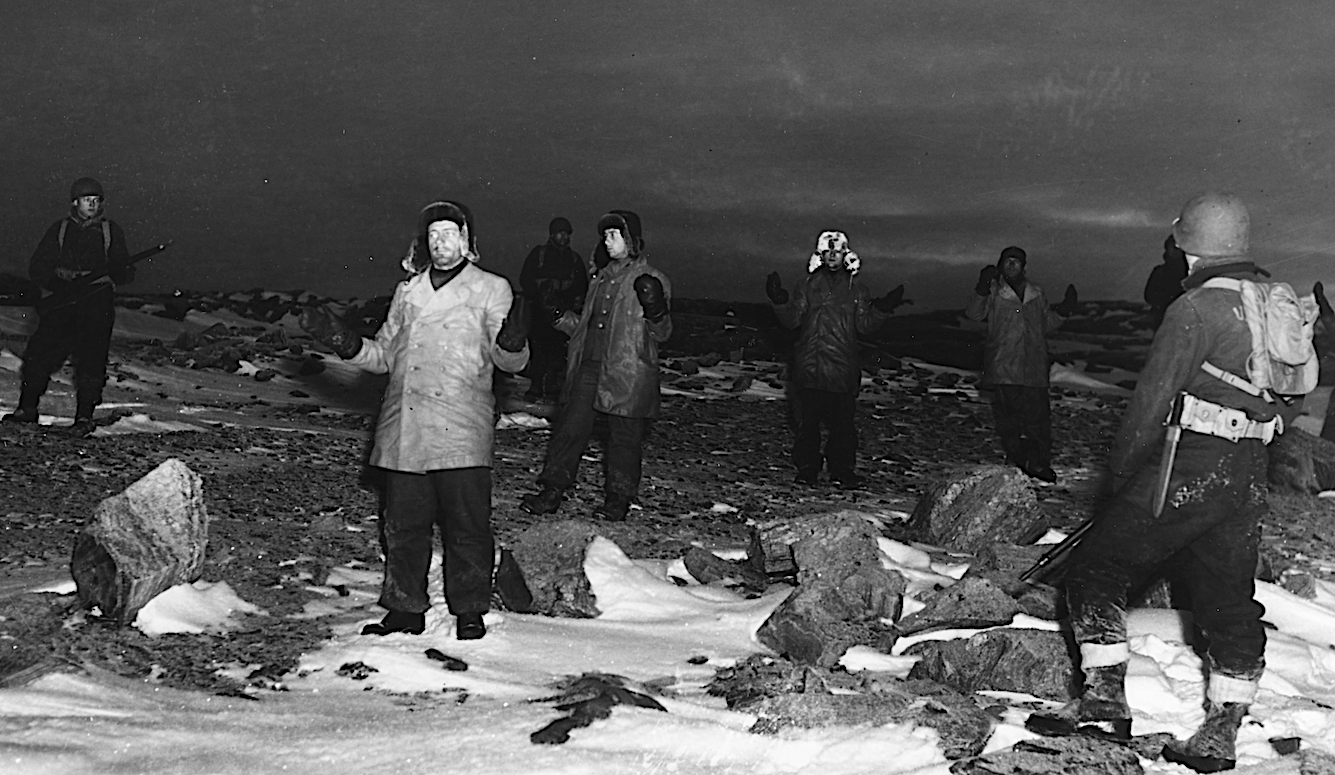Sex
The Language of Sex
While we fuss over definitions and pontificate on freedoms, sex and lust and desire and passion and bodies coming together, remain largely undomesticated.

I had my first “sexual” experiences as a child, somewhere around the fifth or sixth grade. These experiences involved my closest childhood friend. We would play “kidnap” at her house. I’m not entirely sure what the actual plot of the game involved; what I recollect was that one of us would play the man, the hero, and the other the woman in distress. The “man” would rescue the woman, and then we’d kiss each other, and move up and down against each other, feeling for the first time the thrill of sexual arousal. I have come to realize that this kind of childhood sexual play isn’t uncommon. Many of my friends, both men and women, engaged in similar play as a child with a friend of the same sex. There were games one never spoke of. As children, we knew there was supposed to be something secretive about this play, even something shameful. No adult had to tell us this. We just knew.
And yet there was a kind of innocence about our kissing and touching, too. Or, if not precisely innocence, at least a certain kind of naivety and unsophistication. It was simply a part of the natural landscape of childhood: an imaginative space of role playing, of pretending to be grown-up, and of discovering ourselves through play. Playing “kidnap” did not leave a lasting impression on me. It was an exercise of mutual self-discovery, of dipping our toes into new urges and secret pleasures, all explored safely with a childhood friend. We certainly didn’t take it any more seriously than our other imaginative games. If it informed my identity at all, I suppose it did so in a way that underscored the importance of play, of dramatizing different experiences not so that I could gain an insight into myself, but so that I might have a template to help me understand others and the world around me. But to see it in this light is to moralize something that isn’t in fact moral. Mostly I played these secret games with my friend purely to experience pleasure. Nothing more, and certainly nothing less.
I often wonder if cultural forces existed then as now, I would have walked away from these encounters with my playmate wondering if I was a lesbian, or at least a bisexual. It’s difficult to imagine how I might have avoided wondering these things. The language and moral codes of well-meaning adults would have certainly caused me to at least consider my identity as non-binary. (I was also incredibly tomboyish and, until puberty, entirely uninterested in girly things like combing my hair or wearing a skirt.) As it was, notions of my personal identity were left unadministered by the educational and health institutions that have come to hover around children and youth today. I developed an understanding of my sexual identity the old fashioned way, through painful social interactions, giggling self-embarrassments, plenty of missteps, and occasional moments of delight. Ah, youth.
Contemporary notions of sex focus very little on pleasure, and very much on the ethics of identity; if this is a new development in human sexuality, it is certainly the least sexy of all sexual revolutions. Our revolution is about categories. When my younger daughter was in the third grade, she began to feel apprehension about defining herself. “How will I know if I’m bi?” the eight-year-old asked one day at dinner. “What if I can’t tell?” My older daughter, in the seventh grade, is currently one of the only girls in her class who does not self-identify as someone on the gender/orientation 2SLGTBQ+ spectrum. Her neutrality (not hostility nor intolerance) to seventh grade sexual politics has resulted in some of her classmates branding her a “homo,” a word that has an interesting etymology: it has retained its derogatory connotations, but now means, evidently, “homophobe” rather than “homosexual.” The trend for self-identifying with a sexual identity other than “cis-” has even led some seventh graders to identify as a new sexual category “semi-bisexual,” which means “bi-sexual but attracted to only one gender.” In other words, straight. (I am certain that the definition is meant to be satirical, but the irony is lost on most 12-year-olds, I’m afraid.) Our culture is obsessed not with sex, but with sexual definitions. We must at all costs label and define, one can only assume, so as to get a handle on things, set them down correctly, organize them methodically. Our obsession with identity and definitions leaves the terrain of sex and lust largely untouched, even ignored. Our culture’s pathological need to define sex seems to be rooted not in freedom, but in insecurity, in a fear of unknown and undefinable, and in the very bougie proclivity for sanctimonious public morality.
There are a number of prominent tenets that characterize current values surrounding sex and sexuality. The overarching one is, of course, a belief that we are freer, wiser, and more ethical with regards to human sexuality than any civilization prior to us. This is our “pride.” And while it is self-evidently true that official political and institutional systems have become much more open and accepting of sexual orientations, this does not mean that the past was as monolithically repressive as we like to assume. All one has to do is read the Marquis de Sade, or Dostoevsky, or Christopher Marlowe, or Chaucer, to say nothing of the exploits of Roman antiquity, to know that even the most unconventional, “non-binary” sexual appetites have been abundant for many, many centuries. Yet because contemporary notions of sexual liberty require a repressive past from which we have freed ourselves, our ethics of sexual freedom engender feelings of arrogance and superiority, which are hardly ethical attitudes to hold, to a historical inheritance that we neither know nor understand.

My students, for instance, are surprised to learn that of the 154 love sonnets that Shakespeare wrote, the first 126 of them are to a young man. (The final 28, give or take, are love sonnets to the “dark lady,” who is characterized as both sexually experienced and sexually active, with desires and a will of her own. A woman adored and respected, deserving of admiration and love. So much for repressive patriarchy.) The question students invariably ask, then, is: “So… Shakespeare was bi?” To which I reply, “I think Shakespeare would have simply characterized himself as a man, a husband, and a father, though he clearly had an attraction to the beautiful young man of the sonnets, to say nothing of his many characters who demonstrate sexual flexibility in identity and desire.” “But then he’s bi!” they insist. To which I reply, “I think Shakespeare would have found our need for precise labels strange. Why do we have the need to define and to categorize human desire? Why this compulsion to attach precise labels to attraction, lust, and pleasure? If what Oscar Wilde says is true, ‘To define is to limit,’ then is it really Shakespeare and his contemporaries who are more repressed than us moderns because they didn’t self-identify as a category? Or is it us who try to contain our sexuality by itemizing every possible iteration of lust and attraction? Are we ready to assume that because we attach a label to human sexuality, we somehow understand better than Shakespeare did? Are we in a cultural position to say that Shakespeare’s insight into human nature is limited compared to the average 19-year-old student’s today?”
To their credit, the majority of students have no answer to these questions, and are quite happy—relieved, even—to begin to see themselves and our culture as part of a historical continuum that offers new perspectives for how we might see ourselves. Most of them are also—and we should be heartened by this—willing to concede that Shakespeare may in fact still have something to teach them. (We are often quick to dismiss contemporary students as being breathtakingly judgemental—I, too, am guilty of this. But it does well to remind oneself that young people are, in general, sincere in their pursuit of knowledge and truth. The lack of diverse ideas in schools and on college campuses is not primarily the fault of students, but of adults, professors, and administrators, who collapse under pressure from vocal outrage and shelter young people from their fears. In other words, the responsibility for weakening educational institutions, and young people’s minds, lies with grown-ups who should know better, but who act with cowardice, with concern for institutional liability rather than with concern for free inquiry.) Studying the literature of the past allows us to understand the human condition. It’s how we get to know ourselves. But it also makes us appear strange to ourselves; it is the way we come to understand that our understanding is limited. Perhaps the strangest part of contemporary culture is the pride we take in not seeing ourselves as a part of the continuum of history that will one day be critiqued in the same way we criticize the past. We imagine ourselves beyond history, cut off from our inheritance.
But the questions remain: What is accomplished by insisting on labels? What insight do we gain? Why is our society, unlike civilizations of the past, under such a compulsion to categorize every aspect of sexuality? We seem to insist that sex, desire, and lust be itemized and anatomized like a display of moths, splayed and pinned on a board, each one carefully labelled behind a clean sheet of glass. Then we can inspect and admire the dead species from a sanitary and objective distance rather than immerse our imaginations in the great mystery and the dark abyss of frothing spit and blood and cum that is the natural provenance of human sexuality. In one sense, then, our contemporary obsession with definitions removes us from the actuality of bodies coming together through fucking. We can be liberated and radical, exercising our freedom from the sexually oppressive tyrannies of the past, all while never actually encountering another body in the messiness of sex. The accomplishment of contemporary ethics is that we have named sex as the core of identity, in all its fluidity, all without ever having to confront the vulgarity of actual bodily fluids that are an indivisible part of sex.
The changing nature of Pride parades offers a tidy example of this kind of shift away from sex to sanitation. A few years ago, the parades were celebrations of lust and desire, filled with fellatio, fuelled by ecstasy and cocaine. Now they are family friendly events, populated by suburban parents snapping pics of their cotton-candied sticky kids for social media, and fuelled by non-fat, dairy-free, almond-milk lattes. Cool. It is difficult, I suppose, to combine pure bacchanalian freedom with corporate sponsors. We attend events such as the Pride parade, and congratulate ourselves on how sexually free we are, all while remaining at a safe distance from cocks and cunts and cum, the messy, lumpish parts of ourselves that stubbornly refuse to be recategorized as bourgeois. To be sure, Pride satisfies many of the same moral urges that contemporary sexual “libertines” condemn in the past. The perception of previous generations is that they were stuffy, uptight, and populated with pearl-clutching puritans who wanted sex to be contained within socially conventional, safe parameters. Pleasure was suspect. What was good and pure was to fuck with moral correctness. I suspect the well-intentioned middle-class parents who bring their grade-schoolers to Pride parades take no interest in teaching their kids about sexual pleasures, about fucking freely and relishing in the sweet filth of sex, or even in the sublime mystery of it, like the libertines of the past, but that they rather bring them there to teach their young about conventional middle-class sexuality morality and correctness. Perhaps we are not so strange after all.

Social norms around sex are important because sex is dark and mysterious, brutal and beautiful. It is no mere coincidence that every culture, through every epoch, establishes rituals, taboos, and codes around fucking. Sex is not a “safe space.” Sex is danger. And the only way to fuck “right” is to lose oneself in it. “La petite mort.” The little death. There is no “self-identity” in the ecstasy of a climax. It is pure release. Orgasm is letting go. It is self-forgetting. It is to be a pure body, the lowest, most vulgar parts of our body. The bourgeois morals of the past existed to control our lusts precisely because they understood the dangers of sex. Sex is passion, disruptive and intemperate. What we have done now is incorporate the name of social disruption, the label of freedom, and the perception of sexual liberty and put these abstractions at the centre of bourgeois morality. Our core belief is not that lust is wild and dangerous, and that human behaviour needs to be correspondingly contained; it is that if we recategorize lust as moral, we can contain and tame it.
Yet in doing so we, like the cultures of the past we excoriate, have simply made an attempt to control and to domesticate sex by organizing our language around it. We want to take the danger out of sex. To make it acceptable. Most of all the middle-class wants to be moral, to feel the pleasure not of sex, but of respectability and self-regarding rightness. We want to feel good about ourselves—validated. But to feel good about sex requires us to contend with its darkness. And so we attempt to exorcise the dark corners of our nature by labeling and defining them. Containing them. The more we anatomize, the less there is to fear. And so we turn the abyss of sexual desire into shallow, and largely meaningless, self-signifiers.
But while we fuss over definitions and pontificate on freedoms, sex and lust and desire and passion and bodies coming together, remain largely undomesticated. What does lust have to do with categories? What does desire have to do with self-defining? The answer is, of course, nothing. Sex refuses to be contained because desire has no parameters, nor does the human imagination. Our danger doesn’t come from sexual control and repression, though this is what we claim we’re fighting against. It comes from pretending that sex shouldn’t be something suppressed and controlled. It is one thing to let a wild beast into your home. Another thing entirely to imagine it is tame and forget that it’s there.
My fledgling sexual encounters with my grade school classmate certainly did not leave any permanent mark on my identity. Nevertheless, I still, on occasion, indulge in playful dalliances with women. This is not because I’m bi. It is because I’m decadent. I do it because sometimes the thing I desire is precisely to be bad. I do it because it’s pleasurable. Because I’m desiring. I do it for play, for fun, for sexiness. I do it because there is a pit of debauched instincts within me, and I like it that way. Why? Because sometimes one needs to break the rules to feel free, rather than change the rules so that they can no longer be broken. For where is the freedom in that? This self-knowledge that I am, in part, sullied by my own instinct for pleasure allows me to understand my sexuality as a dynamic, seething, fervent thing. My occasional desire for women is not a part of my self-identity. It is simply good old-fashioned lust. My sexuality isn’t a moth pinned to a board. It is alive, always and forever tempted to fly closer and closer to the dangers of flames that draw it in.






